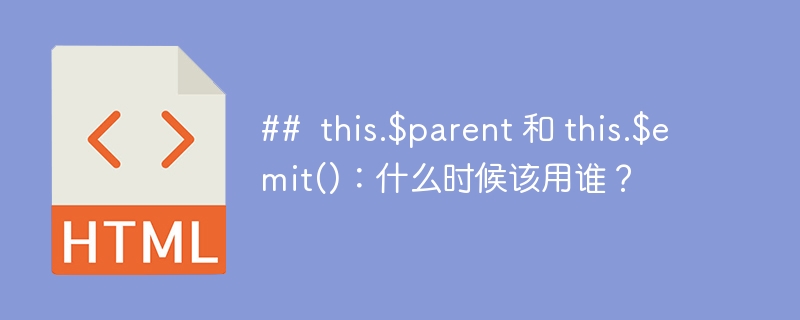## this.$parent 和 this.$emit():什么时候该用谁?

this.$parent 和 this.$emit() 的比较
当需要在父组件和子组件之间传递方法时,可以使用 this.$parent 和 this.$emit()。然而,两者在使用上存在差异。
this.$parent
this.$parent 直接访问父组件的实例,允许子组件调用父组件中的方法。使用起来非常简单,只需一步即可:
this.$parent.myMethod()
this.$emit()
相反,this.$emit() 发出事件,该事件由父组件侦听并处理。在父组件中,可以使用 $on() 侦听事件:
// 父组件
export default {
methods: {
myMethod() {
console.log('This method was called from the child component.')
}
},
created() {
this.$on('myEvent', this.myMethod)
}
}
// 子组件
export default {
methods: {
emitEvent() {
this.$emit('myEvent')
}
}
}
用 this.$parent 代替 this.$emit()
this.$parent 似乎更容易使用,因为只需要一步就可以实现。然而,对于以下情况,最好不要用 this.$parent 代替 this.$emit():
- 耦合性高:使用 this.$parent,子组件必须知道父组件方法的名称。这增加了组件之间的耦合性。
- 维护困难:如果父组件的方法名称发生更改,子组件也必须更新。
- 可重用性差:使用 this.$parent,子组件无法在其他父组件中重用,因为方法名称可能不同。
相反,this.$emit() 提供了更松散的耦合,允许子组件独立于父组件发出事件。父组件可以自由决定如何处理这些事件。
以上就是## this.$parent 和 this.$emit():什么时候该用谁?的详细内容,更多请关注其它相关文章!
